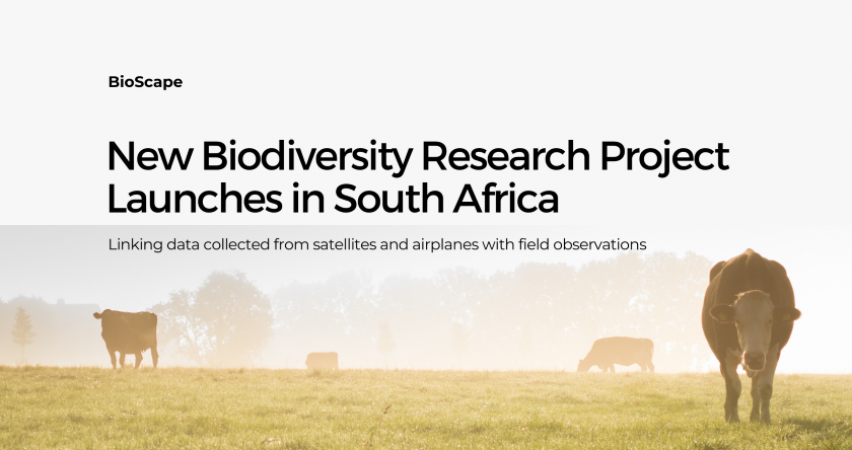
A groundbreaking biodiversity research project, known as BioSCape, has been officially launched in South Africa. The project, a collaborative effort between scientists from the United States and South Africa, is set to revolutionize the understanding of biodiversity in the Greater Cape Floristic Region and its contributions to nature.
Spearheaded by funding from the National Aeronautics and Space Administration (NASA) and the South African government through the National Research Foundation (NRF), BioSCape will merge satellite and aerial data with real-time field observations. This innovative approach to biodiversity research has been in the works since 2021 and is scheduled to continue until 2024, with the primary data collection phase taking place from mid-October to mid-December 2023.
In a unique and comprehensive endeavour, NASA's aircraft and instrument teams will take to the skies above Cape Town, collecting invaluable data that will shed light on the intricate web of life in this ecologically diverse region.
BioSCape's multifaceted approach includes aerial surveys, vegetation assessments, measurements of plant and water spectral reflectance, phytoplankton sampling, bird and frog call recordings, and environmental DNA analysis. Dr Jasper Slingsby, the South African Lead Scientist and a Lecturer at the University of Cape Town, highlighted the pivotal role this project plays in advancing biodiversity conservation and management strategies for the region.
Dr Mary-Jane Bopape, Managing Director of the South African Environmental Observation Network (NRF-SAEON), expressed pride in their partnership with BioSCape. She emphasized the potential of the project's findings to inform crucial environmental management decisions in the region, while also fostering opportunities for networking, knowledge exchange, and insights into cutting-edge research.
BioSCape's mission is not only focused on biodiversity research but also on capacity building and education in South Africa. It holds the promise of enhancing global understanding of biodiversity, developing new technologies for monitoring nature's contributions to people and comprehending the impacts of climate change on ecosystems.
This ambitious collaborative endeavour is led by scientists from the University of Cape Town, the University of Buffalo (New York, USA), and the University of California Merced (California, USA). With its pioneering research methods and transcontinental approach, BioSCape is set to illuminate the intricate tapestry of life in the Greater Cape Floristic Region and beyond, contributing to the global effort to conserve and appreciate biodiversity.
Article by Jed Mwangi
Photo/Google
https://www.nrf.ac.za/new-biodiversity-research-project-launches-in-south-africa/

Comment